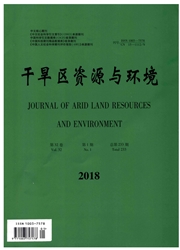

 中文摘要:
中文摘要:
在地下水超采区农业生态补偿中,种植结构调整、冬小麦春灌节水、非农作物替代农作物三项政策是参与农户最多,覆盖面最广的地下水压采主要措施,综合分析三种政策的节水效果对于实现地下水压采的政策目标具有重要意义。文中基于河北省地下水超采综合治理试点地区的实地调研,对试点区域内上述三政策的节水效果进行评估。研究结果表明:种植结构调整政策的节水效果最优,冬小麦春灌节水政策的节水效果不理想。根据各政策的节水效果以及区域实际情况,实现政策实施的"精准化",将对提高政策的实施效果具有重要意义。
 英文摘要:
英文摘要:
In agro -ecology compensation for groundwater overdraft areas, three policies including aajusting planting structure, irrigating winter wheat in spring for water saving and replacing crops with non - crops are main measures of restraining groundwater overdraft with the largest number of participating peasant households and the widest coverage. Conducting a comprehensive analysis on the water - saving effect of three policies is of great significance to achieve the policy goal of restraining groundwater overdraft. Based on the spot investigation into the pilot areas of comprehensive treatment of groundwater overdraft in Hebei Province, we evaluated the wa- ter - saving effect of the above three policies in pilot areas. From the research result, it can be seen that the poli- cy of adjusting planting structure shows the optimal water - saving effect while the policy of irrigating winter wheat in spring for water saving fails to achieve satisfactory water - saving effect. According to the water - saving effect of various policies and the practical situation of areas, it is realized the "precision" of policy implementation will have important significance to improve the implementation effect of policies.
 同期刊论文项目
同期刊论文项目
 同项目期刊论文
同项目期刊论文
 期刊信息
期刊信息
